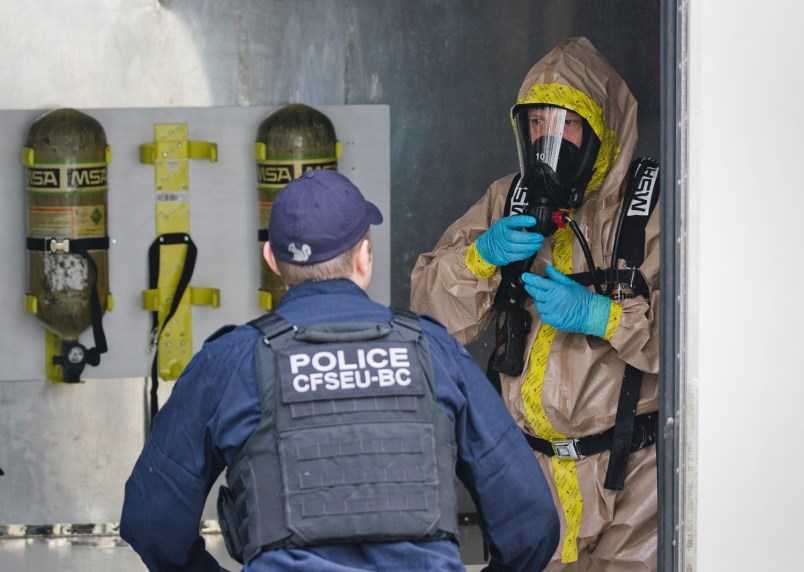How is the Richmond community going to reverse the exponential rise of its residents dying of illicit drug overdoses? Could the city soon see its first safe-injection site? How can authorities close the pipeline of fentanyl flowing in from China? Can social workers come together as one, unified voice?
Questions such as these are expected to be addressed by a new Community Action Team (CAT) aimed at reversing the opioid crisis.
On the heels of preliminary data from the BC Coroners Service showing over 1,400 illicit drug overdose deaths across the province last year, including 24 in Richmond, Minister of Mental Health and Addictions Judy Darcy said some money is coming to this city to form a unified community response to the crisis.
Eighteen B.C. communities, including Richmond, will get about $83,000 each, on average, to form a “comprehensive community-level response” to the drug crisis, said Dr. Patricia Daly, chief medical health officer at Vancouver Coastal Health.
The money will be administered by Daly’s Vancouver-based Overdose Response Centre. The team will consist of the likes of local social service agencies, first responders, police and health professionals — all of which are known to be working with overdose issues.
While the money pales in comparison to the $322 million the provincial government is spending over three years on the overall response to the crisis, CAT is seen as vital to organize localized responses, as each community has a different set of circumstances, said Darcy.
“This is a public health emergency. We’re treating it with bold action,” said Darcy.
“It’s not just reactive, it’s proactive. It’s about getting ahead and finding the people who are at risk,” she said.
In 2012, 269 people died of illicit drug overdoses, including one in Richmond. Since 2014 the numbers have risen drastically, particularly as more drugs are laced with the powerful opioid fentanyl. Richmond, however, still has the lowest deaths per capita among the chosen communities.
Darcy said the teams will address four essential tasks: Expand harm reduction services; increase naloxone availability; address the unsafe drug supply; and work proactively with support services.
Such tasks may be addressed in one way or another in Richmond, depending on what Richmond’s team identifies as priorities and what the community accepts.
For instance, the Richmond News has reported in the past how harm reduction measures, such as safe-injection sites, are opposed by vocal, socially conservative Chinese groups.
Meanwhile, Richmond RCMP and Richmond Fire Rescue have established naloxone protocols for their officers and first responders, respectively. Richmond Hospital, Transitions (8100 Granville Avenue) and the Anne Vogel Clinic (210-7671 Alderbridge Way) are also offering free take-home naloxone kits. And as of last December, pharmacies offer free kits.
As far as the drug supply goes, Richmond has been at the centre of two, recent major fentanyl busts that have entered the B.C. court system. Resident Walter James McCormick was sentenced to 17 years in prison in January 2017. Meanwhile residents Yan Chau (Andrew) Lam and Sok Wai (Gertrude) Cheong are before the courts facing charges involving the importation of 40,000 fentanyl pills. As well, Postmedia has reported on fentanyl labs in Richmond tied to a money-laundering scheme via River Rock Casino and Resort.
Finally, Richmond Addiction Services Society (RASS) is presently hosting public forums to raise awareness of the issues in Richmond. The society hopes to bring agencies together with government officials.
RASS executive director Rick Dubras said addressing stigma and cross-cultural understanding of addiction is a key priority. He told the News the addiction problem is likely worse than the stats reveal as many Richmondites take drugs in Vancouver.
Darcy also sees stigma as an issue.
“We need to stop seeing it as a moral failure and start seeing it as a health issue,” she said.



